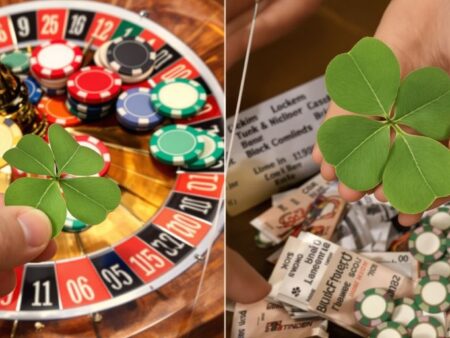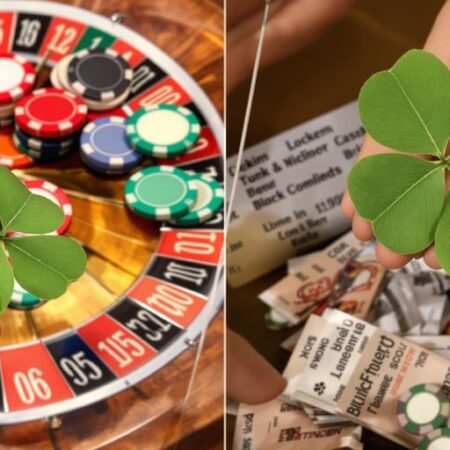Getting a handle on sports betting is a bit like trying to keep a runaway train on its tracks. You can have all the best intentions and a solid plan, but one bad call or a string of losses can send you off course. That’s where understanding and managing your emotions, often called ’tilt,’ becomes super important. This article is all about helping you stay cool and collected, so you can make smarter bets and hopefully win more often. We’ll look at why we get emotional, how to build a better mindset, and some practical tips to keep your betting on the right path.
Key Takeaways
- Recognizing and managing emotional responses is key to consistent wins in sports betting.
- Online betting platforms can amplify emotional reactions due to instant updates and constant access.
- A disciplined betting mindset, focusing on clarity and emotional regulation, is vital for making sound decisions.
- Effective bankroll management, including setting budgets and controlling stake sizes, prevents chasing losses.
- Thorough research, line shopping, and understanding advanced strategies like the Kelly Criterion improve betting outcomes.
Understanding the Roots of Tilt in Sports Betting
Ever find yourself getting a little too worked up after a bad beat? Yeah, me too. It’s like, one minute you’re cool as a cucumber, and the next, you’re ready to throw your laptop out the window because some random player missed a free throw at the buzzer. That feeling, that’s what we’re talking about here. It’s called tilt, and it’s a real thing that can mess with your betting game big time.
Recognizing Emotional Responses
So, what exactly is this tilt thing? Basically, it’s when your emotions, usually frustration or anger, start calling the shots instead of your brain. Think about it: you put down a solid bet, did all your homework, and then BAM, something totally unexpected happens, and you lose. It stings, right? And then maybe you make another bet, a quick one, trying to win back what you just lost. That’s tilt creeping in. It’s that urge to immediately correct a loss, often with bigger, riskier bets, without really thinking it through. It’s the emotional reaction overriding your logical process.
The Impact of Loss of Control
When you’re on tilt, you’ve kind of lost control of your betting. It’s like being a passenger in your own car, but someone else is driving, and they’re flooring it. You might start betting on games you know nothing about, or you might double your usual stake because you feel like you have to win it back. This loss of control is dangerous because it leads to impulsive decisions. You’re not sticking to your plan anymore; you’re just reacting. This is where the real damage happens to your bankroll. It’s not about strategy anymore; it’s about trying to outrun a bad feeling.
Identifying Triggers for Emotional Betting
What sets off this tilt? It’s different for everyone. For some, it’s a string of bad luck, like a bunch of close calls that just don’t go their way. For others, it might be a specific type of loss, maybe losing on a heavy favorite or a parlay that was just one leg away from hitting. Even things like a team you really like losing can be a trigger. It’s important to pay attention to what makes you feel that surge of frustration. Keeping a simple log can help. You might notice patterns, like how you tend to bet more aggressively after a loss or when you’re feeling stressed about something else entirely. Recognizing these triggers is the first step to managing them.
The Digital Landscape and Emotional Betting
The online world of sports betting, it’s a whole different ballgame, isn’t it? Everything happens so fast. You’ve got apps on your phone, constant notifications buzzing, and odds changing faster than you can blink. This digital environment can really mess with your head, making it way too easy to get caught up in emotions and make bad calls. It’s like being in a casino that never closes, right there in your pocket. The sheer accessibility means you can place a bet anytime, anywhere, which sounds great, but it also means you can chase losses or make impulsive bets when you’re feeling frustrated. It’s a powerful amplifier for those emotional responses we talked about earlier. You’re bombarded with live scores, instant updates, and all sorts of promotions designed to keep you engaged, and sometimes, that urgency just pushes you over the edge. It’s easy to feel like you need to act now, even when a little patience would serve you much better. The anonymity of online platforms can also play a role; sometimes, not seeing other people or feeling directly accountable makes it easier to make riskier decisions than you might otherwise. It’s a tricky landscape, for sure.
Developing a Disciplined Betting Mindset
Building a solid betting mindset is like constructing a house; you need a strong foundation. Without it, one bad loss can bring the whole thing crashing down. It’s not just about picking winners; it’s about how you handle the inevitable losses and the small wins too. Staying grounded means you don’t get too high after a good run or too low after a bad one. This emotional even keel is what separates the casual bettor from someone who’s actually trying to make smart decisions over the long haul.
The Importance of Staying Grounded
Think of yourself as a ship captain. The sea is going to get rough sometimes, storms will hit, and you’ll lose sight of land. But a good captain doesn’t panic. They stick to their course, make necessary adjustments, and trust their training. In betting, staying grounded means acknowledging that losses are part of the game. It’s about not letting a few bad results derail your entire strategy or, worse, your mood. You need to remember why you started betting in the first place – hopefully, for enjoyment and a bit of calculated risk, not as a way to fix everything that’s wrong in your life. When you’re grounded, you’re less likely to chase losses or make impulsive bets just to feel something.
Maintaining Clarity Amidst Volatility
Sports betting is inherently volatile. One minute you’re on top of the world, the next you’re staring at a losing ticket. This constant swing can mess with your head. To maintain clarity, you need to have a plan and stick to it, even when things get hairy. This means having pre-set rules for yourself. For example:
- Never bet more than 1% of your bankroll on a single game. This is a golden rule. It protects you from blowing through your money too quickly.
- Set a daily loss limit. If you hit it, you walk away, no questions asked.
- Take breaks. If you feel yourself getting frustrated or angry, step away from the screen. Go for a walk, listen to music, do anything that isn’t betting.
These aren’t just suggestions; they’re your lifelines in choppy waters. Without them, you’re just adrift.
Optimizing Decisions Through Emotional Regulation
This is where the real work happens. Emotional regulation isn’t about suppressing your feelings; it’s about understanding them and not letting them dictate your actions. When you feel that familiar surge of frustration after a bad beat, recognize it. Ask yourself: ‘What is this feeling telling me?’ Is it telling you to bet bigger to win it back? Or is it telling you to take a deep breath and reassess?
Here’s a simple way to think about it:
- Identify the emotion: Anger, frustration, elation, desperation.
- Acknowledge it without judgment: It’s okay to feel this way.
- Pause: Don’t act immediately. Give yourself a moment.
- Re-evaluate your plan: Does this emotion align with your betting strategy?
- Act based on your plan, not the emotion: Stick to your predetermined rules.
It takes practice, a lot of it. But the more you do it, the better you get at separating your rational mind from your emotional reactions. This separation is key to making consistently better decisions and, ultimately, winning more often.
Essential Strategies for Bankroll Management
Alright, let’s talk about keeping your betting money safe. It sounds boring, I know, but seriously, this is where so many people mess up. You get a few wins, feel like a genius, and then BAM, one bad day wipes out your whole bankroll. That’s not how you win consistently. You gotta treat your betting money like, well, money you can’t afford to lose. It’s not your rent money, it’s not your grocery money. It’s your betting money, and it needs its own little safe space.
Setting and Adhering to a Budget
First things first: decide how much you’re willing to put into this whole sports betting thing. This is your bankroll. Maybe it’s $500, maybe it’s $5,000. Whatever it is, it needs to be money you can genuinely afford to lose without it messing up your life. Once you set that number, stick to it. No exceptions. If you said $500, then $500 is the absolute limit. Don’t dip into your savings or, heaven forbid, your credit card. That’s a fast track to disaster.
The Role of Stake Size and Betting Units
Now, how much do you bet on each game? This is where betting units come in. A common rule of thumb is to keep your individual bets to 1-5% of your total bankroll. So, if you have a $1,000 bankroll, a single bet should be between $10 and $50. This might seem small, but it’s designed to protect you during those inevitable losing streaks. Think of it like this:
| Bankroll | Unit Size (1%) | Unit Size (5%) |
|---|---|---|
| $500 | $5 | $25 |
| $1,000 | $10 | $50 |
| $5,000 | $50 | $250 |
Using these units helps you stay disciplined. You’re not just throwing money around; you’re making calculated bets based on your bankroll. It’s a simple concept, but man, it makes a huge difference.
Avoiding the Pitfalls of Chasing Losses
This is the big one. You lose a bet, then another, and suddenly you feel this urge to bet bigger to win it all back. That’s chasing losses, and it’s a gambler’s worst enemy. It’s like digging yourself into a deeper hole. If you lose a bet, you accept it, move on, and stick to your unit size for the next bet. Never increase your stake size just because you’re on a losing streak. It’s tempting, I get it. You feel like you need to win. But that’s exactly when you make bad decisions. Stick to the plan, stay within your budget, and let the results come. Patience is key here, and honestly, it’s way more profitable in the long run.
Leveraging Research for Informed Wagers
Look, nobody wins consistently by just guessing. You gotta do your homework. It’s like trying to cook a fancy meal without a recipe; you might end up with something edible, but it’s probably not going to be great. Sports betting is no different. Putting in the time to dig into the numbers and understand what’s really going on is what separates the folks who are just having fun from those who are actually trying to make smart wagers.
The Necessity of Thorough Homework
Seriously, this is where the real edge comes from. You can’t just look at team names and pick a winner. You need to get your hands dirty with the details. Think about it: what’s the weather going to be like? Who’s injured? Is there a coaching change that’s shaking things up? These aren’t minor details; they can totally flip a game’s script. The more you know, the better your chances of spotting a bet that the oddsmakers might have overlooked. It’s about finding those little nuggets of information that can make a big difference.
Analyzing Statistics and Identifying Trends
Numbers don’t lie, usually. You’ve got to get comfortable with stats. It’s not just about wins and losses, either. Look at offensive efficiency, defensive ratings, how teams perform against the spread in certain situations, or even how a specific player does against a particular type of defense. Are they on a hot streak? Are they slumping? Maybe a team always plays poorly on the road after a long flight. These trends, when you can spot them, are gold. You can even make a simple table to track some key metrics:
| Team | Avg Points Scored | Avg Points Allowed | ATS Record (Home) | ATS Record (Away) |
|---|---|---|---|---|
| Team A | 115.2 | 108.5 | 5-3 | 2-6 |
| Team B | 109.8 | 112.1 | 4-4 | 5-3 |
Utilizing Expert Opinions and Tools
While you should always do your own research, there’s no shame in seeing what others are saying. Some analysts or sites offer really good breakdowns. Just be careful, though. Don’t just blindly follow someone else’s picks. Use their insights to inform your own thinking. Think of it as getting a second opinion before a big decision. There are also tools out there that can help crunch numbers or track line movements, which can be super helpful if you’re short on time or just want another perspective. It’s all about building a solid foundation for your wagers.
Mastering Line Shopping for Value
Alright, let’s talk about line shopping. It sounds fancy, but really, it’s just about being smart with where you place your bets. Think of it like this: you wouldn’t buy the first car you see, right? You shop around. Same idea here. Different sportsbooks, they offer different odds. Sometimes the difference is tiny, like a few cents. Other times, it’s a lot more. And those little differences add up, especially if you’re betting regularly.
The goal is simple: get the best possible price for your wager.
Why does this matter? Because even a small edge can make a big difference in your long-term winnings. If you bet $100 on a team at -110 odds, you win $90.91 if they cover. But if you find the same bet at -105 odds somewhere else, you win $95.24. That’s almost five extra bucks for doing basically nothing different. Multiply that by hundreds of bets, and you see where I’m going with this. It’s not about picking more winners; it’s about getting more money when you do pick a winner.
So, how do you actually do it? It takes a little effort, sure. You need to have accounts at a few different places. Then, before you place a bet, you quickly check the odds across them. Some people use tools or apps to help with this, which can save time. It’s a bit of a hassle at first, I’ll admit. I remember when I first started, I just bet wherever I happened to be. Then I learned about line shopping, and it felt like I was leaving money on the table. Now, I can’t imagine betting without doing it. It’s just part of the process.
Here’s a quick rundown:
- Identify your bet: Know exactly what you want to wager on (e.g., Team A to cover the spread).
- Check multiple sportsbooks: Compare the odds for that specific bet across at least 3-4 different platforms.
- Place the bet with the best odds: Choose the sportsbook that offers you the most favorable price.
It might seem like a small thing, but trust me, mastering this can really boost your bottom line. It’s one of those unglamorous but super effective strategies that separates the casual bettor from someone who’s serious about making consistent profits. Don’t skip this step; your wallet will thank you later.
Advanced Tactics for Seasoned Bettors
Alright, so you’ve moved past the basics and are looking to really sharpen your edge. That’s where these advanced tactics come in. They aren’t for the faint of heart, but for those who put in the work, they can really make a difference. It’s about finding those little edges that others miss.
Understanding Home Team Advantage
Teams just play better at home, right? It’s not just the crowd; it’s familiarity, less travel, all that stuff. Knowing how much this actually impacts a game can be a big deal for your bets. Some teams really thrive on their home turf, while others don’t seem to care where they play. You gotta look at the numbers for this.
Exploring Season Total Wins Betting
This is a different kind of bet. Instead of picking a winner for one game, you’re guessing how many games a team will win all season. It takes a lot of research. You need to think about the coach, player changes, injuries, and how tough their schedule looks. It’s a long-term play, for sure.
Navigating Futures Bets and Their Risks
Futures bets are for predicting things way down the line, like who wins the championship before the season even starts. The payouts can be huge if you get it right. But man, the risk is also massive. So much can happen over a whole season. You really need to know what you’re getting into before you place one of these. It’s a gamble, but a calculated one if you do your homework.
The Kelly Criterion and Optimal Bet Sizing
Alright, let’s talk about the Kelly Criterion. It sounds fancy, and honestly, it kind of is, but it’s a really smart way to figure out how much of your bankroll you should be betting on any given wager. Think of it as a mathematical guide to not going broke too fast. It’s all about finding an edge, that little bit of an advantage you think you have over the bookmaker. If you don’t have an edge, you shouldn’t be betting, plain and simple. This isn’t about gut feelings or just picking your favorite team. It’s about cold, hard numbers. You need to know the probability of an outcome happening and compare that to the odds the bookmaker is offering. If your calculated probability is higher than what the odds imply, you’ve found your edge. And that edge is what fuels the Kelly Criterion.
So, how does it work? It’s a formula, and yeah, it involves fractions and decimals, which can be a bit much at first. The basic idea is that the bigger your edge, the larger your bet should be, relative to your bankroll. But it’s not a free pass to bet everything. It scales your bet size. A small edge means a small bet. A huge edge means a bigger bet, but still a fraction of your total money. The goal is to maximize your long-term growth without risking ruin.
Here’s a simplified look at the components:
- Edge (or ‘f’): This is the advantage you have. Calculated as (Probability of Winning * Decimal Odds) – 1. If this number is negative, you don’t bet.
- Bankroll: The total amount of money you’ve set aside for betting.
- Bet Size: The amount you’ll wager, calculated using the formula.
Let’s say you’ve done your homework and you’re pretty sure a team has a 60% chance of winning, but the odds imply only a 50% chance (which would be odds of 2.00). Your edge is (0.60 * 2.00) – 1 = 0.20, or 20%. If your bankroll is $1000, the Kelly Criterion might suggest betting around 5% of that, so $50. Now, if your edge was only 5%, you might only bet 1% of your bankroll. It’s a dynamic system.
It’s important to remember that this is a tool, not a magic wand. The probabilities you use have to be accurate, and that’s the hardest part. If your probability estimates are off, the Kelly Criterion can actually lead you to make bigger, riskier bets than you should. Many bettors use a ‘fractional Kelly’ approach, betting only half or a quarter of what the full formula suggests, to account for the uncertainty in their probability estimates. It’s a way to be aggressive but also cautious. Using it consistently can really help manage your money and grow your bankroll over time, but you gotta be smart about it.
Mindfulness and Cognitive Clarity in Betting
Sometimes, you just gotta breathe, you know? Betting can get pretty wild, and before you know it, you’re chasing a loss like a dog chasing its tail. That’s where mindfulness and just being clear-headed come in. It’s not about being some guru, it’s just about not letting your emotions run the show. Think about it: when you’re feeling that frustration after a bad beat, what’s the first thing you want to do? Probably throw more money at the problem, right? That’s tilt talking, and it’s a terrible advisor. Learning to recognize that feeling before it takes over is half the battle.
It’s like when you’re trying to fix something around the house and it just keeps going wrong. You get mad, you rush, and then you make it worse. Betting is kind of the same. You gotta step back, take a breath, and remember why you’re doing this in the first place. It’s supposed to be fun, not a source of constant stress. So, what can you actually do?
- Deep Breaths: Seriously, just stop for a minute and take a few slow, deep breaths. It sounds simple, but it can really reset your nervous system. Try it next time you feel that heat rising.
- Short Breaks: If you’re on a losing streak or just feeling overwhelmed, step away. Go for a walk, grab a drink of water, do anything that gets you away from the screen for 10-15 minutes. You’ll come back with a clearer head.
- Set Time Limits: Decide beforehand how long you’re going to bet for. Stick to it. When your time is up, it’s up. No exceptions, even if you think you’ve found the next sure thing.
It’s also about having a plan. Before you even place a bet, know your goal for that session. Are you trying to hit a specific profit target, or just enjoy watching the game? Having clear goals helps keep you grounded when things get a little crazy. And don’t forget to look at your past bets. What went wrong? What went right? Learning from those moments is super important for staying on track. It’s a process, and nobody gets it perfect right away. Just keep practicing, and you’ll get better at keeping your cool.
Avoiding Common Betting Mistakes
Look, nobody’s perfect, and we all mess up sometimes, especially when money’s on the line. But in sports betting, some mistakes are just plain costly, and they happen way too often. It’s like, you know you shouldn’t, but you do it anyway. Let’s talk about the big ones so you can hopefully steer clear.
The Dangers of Betting Under the Influence
Seriously, don’t bet when you’ve had a few drinks. It’s not just about the alcohol, though. Being overly tired, stressed, or even just super hyped up can mess with your head just as much. When your emotions are all over the place, your judgment goes out the window. You start thinking, "Yeah, this long shot bet is definitely going to hit!" or you might double your stake after a loss because you’re feeling invincible. It’s a recipe for disaster. Keep your betting sessions for when you’re clear-headed and focused. Think of it like driving; you wouldn’t do it drunk, right? Betting is no different.
The Perils of Inaccurate Statistics
We all want to do our homework, right? But where are you getting your stats from? If you’re just grabbing numbers from some random fan forum or a site that clearly favors one team, you’re already behind. You need reliable sources, the ones that actually track the data properly. It’s easy to find stats that seem to support your pick, but if they’re not accurate, your whole bet is built on sand. Always cross-reference and stick to reputable sports data sites. It takes more time, sure, but it’s way better than losing money on bad info.
The Fallacy of Over-Reliance on Systems
There are tons of betting systems out there, promising the moon. And yeah, some might work for a bit, or in specific situations. But no system is magic. If someone tells you they have a foolproof system that guarantees wins, they’re probably selling snake oil. Betting involves too many variables – injuries, unexpected player performances, weather, you name it. Relying too heavily on one rigid system means you’re not adapting. You gotta be flexible. Keep track of your own results, see what’s actually working for you, and don’t be afraid to tweak or ditch a system if it’s not performing. It’s your money, your strategy, make it work for you, not the other way around.
Setting Realistic Expectations for Success
Look, nobody wins every single bet. That’s just not how sports betting works, or really anything in life, if we’re being honest. Thinking you’re going to hit a home run every time you step up to the plate is a recipe for disaster. It’s like expecting your favorite team to win every game of the season. It just doesn’t happen. We need to get real about what success looks like here.
Viewing Betting as Entertainment
Let’s be clear: for most of us, sports betting is a form of entertainment. It adds a little extra excitement to watching the game, right? It’s not a guaranteed path to riches, and honestly, if you’re treating it like a job where you absolutely must make money every day, you’re probably going to have a bad time. Think of it like going to a concert. You pay for the ticket, you enjoy the show, and maybe you buy a t-shirt. You don’t expect the band to pay you back for your ticket, do you? Betting is similar. Enjoy the thrill, the analysis, the drama of the game, but don’t put your rent money on it. It’s a hobby, a pastime, something fun to do on the weekend. Keep it light, keep it fun. If it starts feeling like a chore or a source of constant stress, it’s time to take a step back and re-evaluate why you’re doing it.
Understanding Long-Term Profitability
Okay, so if it’s not about winning every bet, what is it about? It’s about the long game. It’s about making smart decisions consistently over time. You’re not going to get rich overnight. Anyone who tells you otherwise is probably selling something. Real success in betting comes from a disciplined approach, solid research, and managing your money wisely. It means accepting that some bets will lose, and that’s perfectly fine. What matters is that, over hundreds or thousands of bets, your winning bets outweigh your losing ones. It’s a marathon, not a sprint. You need to be patient and trust your process. Think about it like this:
| Metric | Target | Notes |
|---|---|---|
| Win Rate | 50-55% | Varies by sport and bet type |
| Average Stake | 1-2% of bankroll | Never risk too much on one bet |
| Profit Per Bet | Small but consistent | Focus on edge, not huge wins |
This isn’t about hitting grand slams; it’s about stringing together a lot of singles and doubles. It requires a steady hand and a clear head, especially when things aren’t going your way. You have to be okay with not winning every single time.
Patience and Gradual Improvement
This ties right into patience. You won’t become a betting guru overnight. It takes time to learn, to refine your strategies, and to understand the nuances of different sports and betting markets. Don’t get discouraged if you’re not seeing massive profits in your first few weeks or months. That’s normal. What’s important is to keep learning and keep improving. Analyze your past bets. What worked? What didn’t? Why? Were you too emotional? Did you skip your research? Be honest with yourself. Every bet, win or lose, is a learning opportunity. Embrace the process of gradual improvement. It’s about getting a little bit better each day, each week, each season. That’s how you build sustainable success. It’s a journey, and you gotta enjoy the ride, even the bumpy parts.
Wrapping It Up: Staying Ahead of the Tilt
So, we’ve talked a lot about keeping your cool when betting on sports. It’s easy to get caught up in the excitement, especially with online betting making things so fast. But remember, letting emotions run the show usually leads to bad calls and lost money. Sticking to a plan, managing your cash, and doing your homework are the real keys. It’s not about winning every single bet, but about making smart choices over time. Keep a clear head, take breaks when you need them, and you’ll be in a much better spot to enjoy betting and see more wins.
Frequently Asked Questions
What exactly is ’tilt’ in sports betting?
Tilt happens when you let your feelings, like frustration or excitement after a win, mess with your betting choices. Instead of thinking clearly, you might make risky bets or chase after money you lost. It’s like letting your emotions drive the car instead of your brain.
Why is managing tilt so important for winning?
It’s super important because when you’re on tilt, you stop thinking straight. This can lead to losing a lot of money fast. Learning to spot when you’re feeling this way helps you step back and make smarter choices, saving you from big losses.
How does online betting affect tilt?
Online betting can make tilt worse because everything happens so fast. You see scores change instantly and get constant reminders to bet. This makes it easier to get caught up in the moment and make quick, emotional decisions.
What’s the best way to manage my money when betting?
The best way is to have a plan and stick to it. Always decide how much money you can afford to lose before you start betting (that’s your bankroll). Then, only bet a small part of that money on each game. This way, even if you have a bad day, you won’t lose everything.
How can research help me make better bets?
You need to do your homework! Look at team stats, player performance, and past game results. Don’t just guess or bet based on who you *think* will win. Knowing the facts helps you make smarter bets.
What is ‘line shopping’ and why should I do it?
Line shopping means looking at the odds offered by different betting sites. Different sites might offer slightly different payouts for the same bet. By comparing them, you can find the site that gives you the best chance to win more money.
How can being mindful help my betting?
Mindfulness means paying attention to what you’re doing and how you’re feeling without judging it. In betting, it helps you notice when you’re getting emotional or stressed, so you can take a break and calm down before making a bad bet.
Should I expect to make a lot of money betting on sports?
It’s important to remember that sports betting is mostly for fun, like going to a movie. While you can win money, don’t expect to get rich quick. Focus on making smart choices and enjoying the game, and winning more often will come with patience and practice.
















